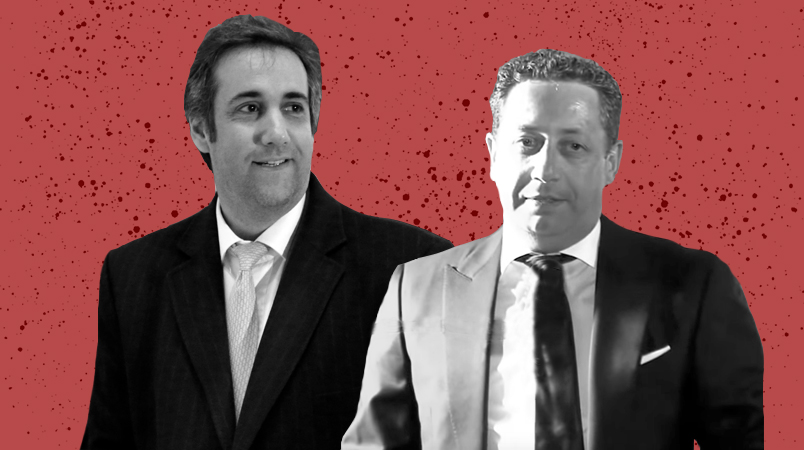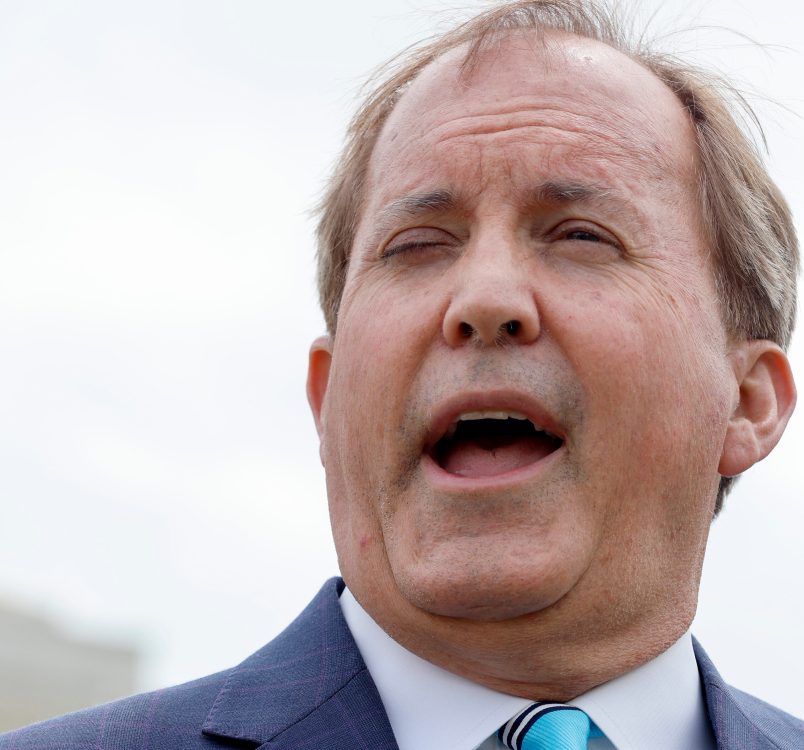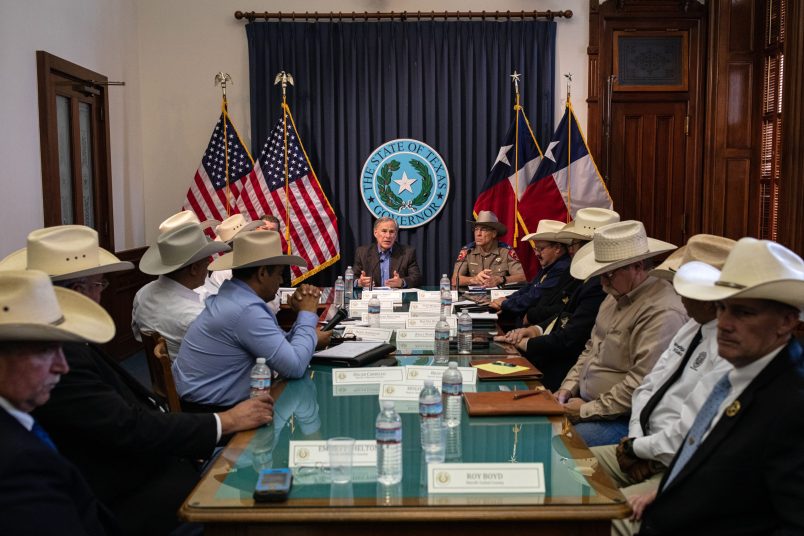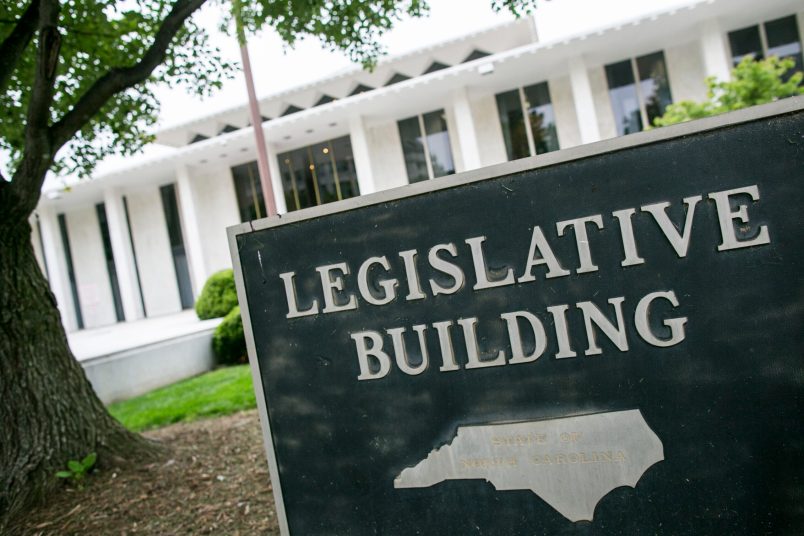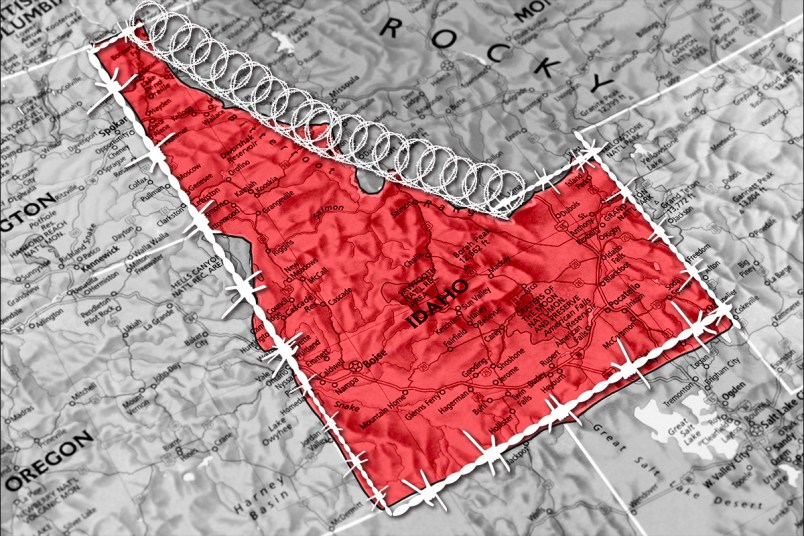There’s been a steady drip-drip-drip of information over the past 24 hours stemming from correspondence that the Trump Organization was turning over to investigators on the House Intelligence Committee, which is probing Russia’s interference in the 2016 election. New details about a development proposed by the Trump Organization in Moscow first appeared to leak to the Washington Post, then to the New York Times and Bloomberg.
The day-long stream of new details, which gel with some of TPM’s reporting from earlier this summer, show more clearly than ever before the extent of the contacts between President Donald Trump’s business associates and the intertwined worlds of Russian real estate and government.
Trump associates explored the deal right up until the first presidential primaries
TPM reported earlier this month that Felix Sater, a business associate of Trump’s who’d been secretly convicted of securities fraud in the late 1990s, was trying to find a way to build a Trump Moscow tower as late as November or December 2015, six months into the U.S. presidential campaign.
Plans for a Trump Moscow project ultimately fell through, however; Sater told TPM it was because Trump became President, but emails between Sater and Michael Cohen, Trump’s former lawyer and frequent press surrogate, reportedly say that the deal stalled out in January 2016 over land permits.
Michael Cohen was the lead negotiator on the prospective deal
Per the Washington Post, Cohen was the most important figure on the Trump Organization’s side of the Trump Moscow equation. Sater’s projects with Trump through his erstwhile firm, Bayrock Group, were often ephemeral—the Trump Fort Lauderdale and Trump SoHo failed spectacularly, while the Trump Phoenix Plaza never materialized all.
But Trump had been saying for years that he wanted a Moscow tower. It’s probably one of the reasons he held Miss Universe 2013 in Moscow with the sponsorship of Azeri billionaire Aras Agalarov, with whom a separate attempt to build a Trump project in Russia fell though.
In his capacity spearheading the Moscow exploration, Cohen went so far as to email the Kremlin directly to ask for help reviving the deal after it stalled in late 2015. “As this project is too important, I am hereby requesting your assistance,” Cohen wrote to Dmitry Peskov, Vladimir Putin’s press secretary, according to the Washington Post. “I respectfully request someone, preferably you, contact me so that I might discuss the specifics as well as arranging meetings with the appropriate individuals. I thank you in advance for your assistance and look forward to hearing from you soon.”
It’s unclear who the “appropriate individuals” Cohen wanted to contact were.
All the while, on top of his duties at the Trump Organization, Cohen was appearing on television and in print media regularly to speak on campaign-related matters.
Sater thought a Moscow deal would help “our boy” get elected
Sater, one of Cohen’s acquaintances from the pair’s teenage years, was very enthusiastic about getting Putin’s help to elect Trump.
“Buddy our boy can become president of the USA and we can engineer it,” Sater wrote to Cohen in an email that has been turned over to congressional investigators, according to the New York Times. “I will get all of Putins team to buy in on this, I will manage this process.”
That is probably the most normal sentence from the email. “Michael I arranged for Ivanka to sit in Putins private chair at his desk and office in the Kremlin,” it continued, as quoted in the Times.
He also felt that he and Cohen were the two men for the job: “We both know no one else knows how to pull this off without stupidity or greed getting in the way. I know how to play it and we will get this done,” Sater wrote.
He is not a man with modest aspirations. In one of several interviews with TPM this summer, Sater said that if he had to do it all over again, he would still try to pull off the audacious plan for a ceasefire deal between Russia and Ukraine that he attempted to get to the White House with Cohen’s help in January.
Trump repeatedly discussed the Moscow plans with Cohen
As reported by Bloomberg, Cohen spoke three times with Trump about the prospective Moscow tower. Again, it was something Trump wanted very much to bring about—in 2005, he and Sater had tried to build the tower on the site of a closed pencil factory along the Moscow River, as reported by the Times.
In a statement to congressional investigators, Cohen said he talked to Trump about the project on three separate occasions. He said that the Trumps were not involved in the decision to quash the project, however, and denied that the prospective business deal had anything to do with the campaign in the first place.
“I did not ask or brief Mr. Trump, or any of his family, before I made the decision to terminate further work on the proposal,” Cohen said in the statement, as quoted by Bloomberg. “The Trump Tower Moscow proposal was not related in any way to Mr. Trump’s presidential campaign.”
Trump signed a letter of intent with a mysterious Moscow-based entity
Citing Cohen’s statement, both the Washington Post and Bloomberg list a Moscow-based business entity called I.C. Expert Investment, which doesn’t at press time show up on Google in any other context than today’s news articles, as the developer the Trump Organization planned to work with.
Trump himself signed a letter of intent with the company on Oct. 28, 2015, according to the Post, making official the agreement to begin developing the property. The Trump Organization then began exploring further financing and soliciting architectural blueprints.
It’s not clear who would have constituted the company; where its financing came from; or why a Moscow-based business would need Cohen to ask for intervention from “appropriate individuals” who knew Putin’s press secretary.


